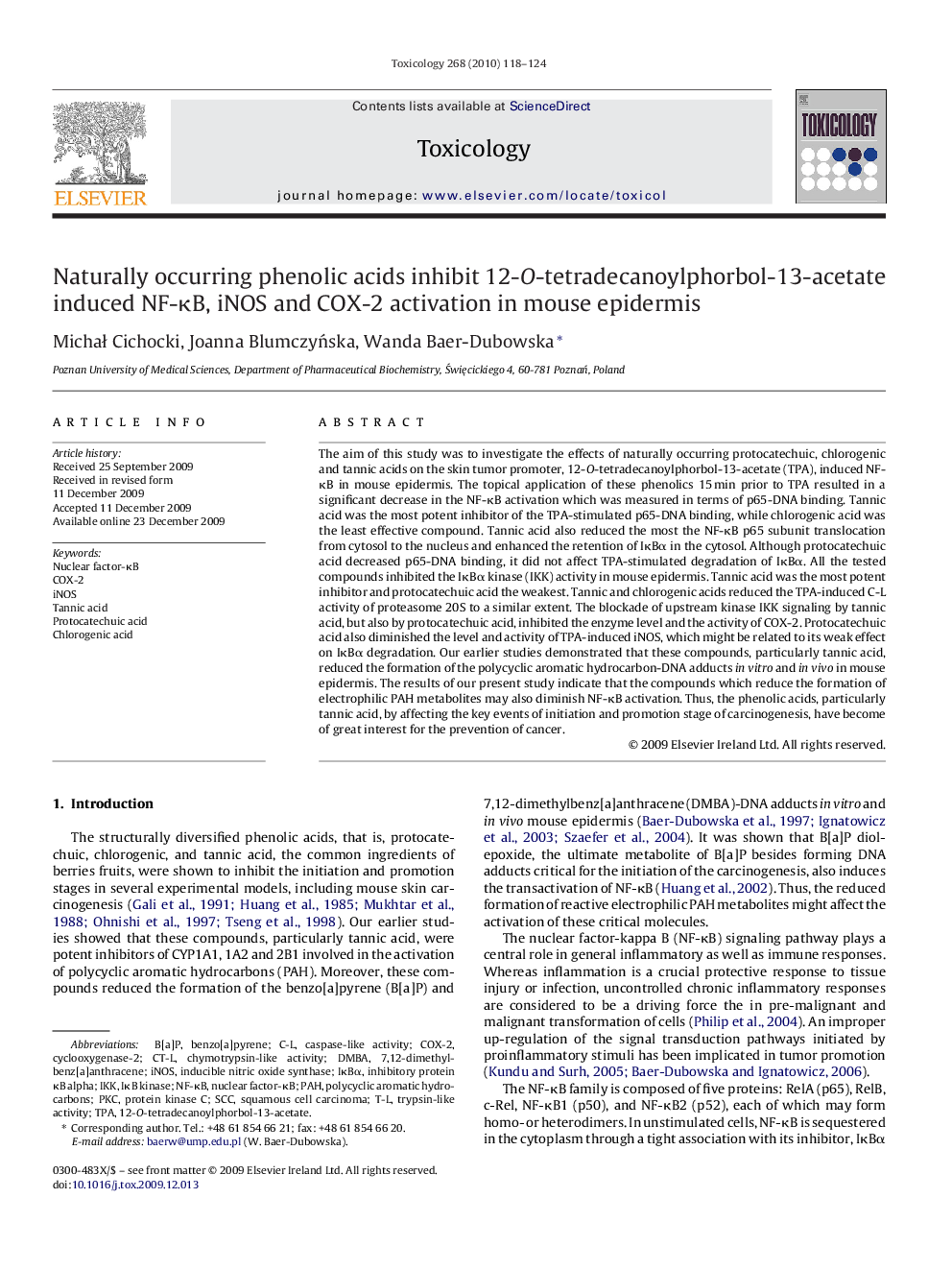| Article ID | Journal | Published Year | Pages | File Type |
|---|---|---|---|---|
| 2596671 | Toxicology | 2010 | 7 Pages |
The aim of this study was to investigate the effects of naturally occurring protocatechuic, chlorogenic and tannic acids on the skin tumor promoter, 12-O-tetradecanoylphorbol-13-acetate (TPA), induced NF-κB in mouse epidermis. The topical application of these phenolics 15 min prior to TPA resulted in a significant decrease in the NF-κB activation which was measured in terms of p65-DNA binding. Tannic acid was the most potent inhibitor of the TPA-stimulated p65-DNA binding, while chlorogenic acid was the least effective compound. Tannic acid also reduced the most the NF-κB p65 subunit translocation from cytosol to the nucleus and enhanced the retention of IκBα in the cytosol. Although protocatechuic acid decreased p65-DNA binding, it did not affect TPA-stimulated degradation of IκBα. All the tested compounds inhibited the IκBα kinase (IKK) activity in mouse epidermis. Tannic acid was the most potent inhibitor and protocatechuic acid the weakest. Tannic and chlorogenic acids reduced the TPA-induced C-L activity of proteasome 20S to a similar extent. The blockade of upstream kinase IKK signaling by tannic acid, but also by protocatechuic acid, inhibited the enzyme level and the activity of COX-2. Protocatechuic acid also diminished the level and activity of TPA-induced iNOS, which might be related to its weak effect on IκBα degradation. Our earlier studies demonstrated that these compounds, particularly tannic acid, reduced the formation of the polycyclic aromatic hydrocarbon-DNA adducts in vitro and in vivo in mouse epidermis. The results of our present study indicate that the compounds which reduce the formation of electrophilic PAH metabolites may also diminish NF-κB activation. Thus, the phenolic acids, particularly tannic acid, by affecting the key events of initiation and promotion stage of carcinogenesis, have become of great interest for the prevention of cancer.
